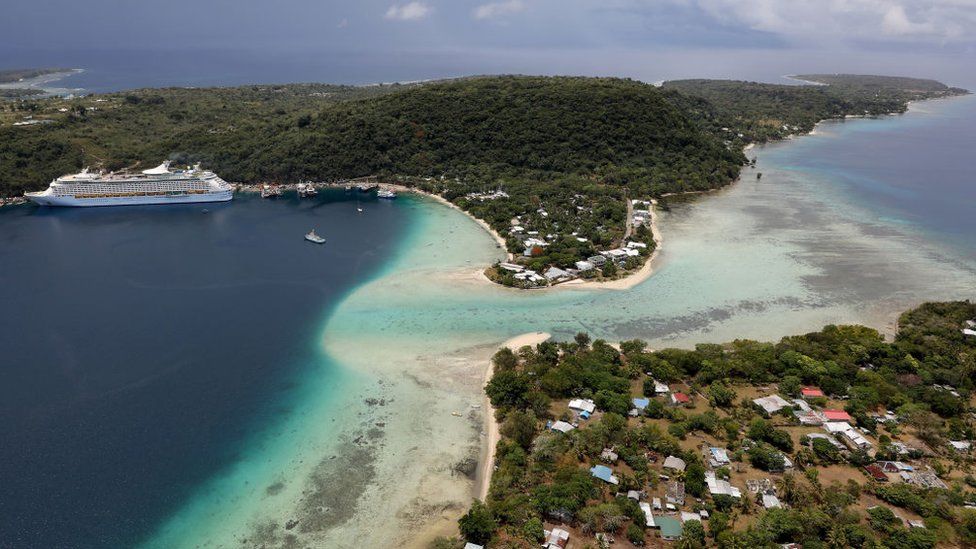Global Offshore Business Environment in Vanuatu
Over the past several decades, Vanuatu has positioned itself as an enticing prospect for businesses and investors seeking tax-efficient jurisdictions. Established as a tax haven since 1971, Vanuatu reinforced its financial services sector in 1993 with the International Companies Act, modeled after the legislations of the Bahamas and British Virgin Islands.
This archipelago, nestled in the South Pacific and comprising eighty islands, provides a tropical paradise for businesses desiring a secure and tax-transparent international corporate structure. It is a zero-tax jurisdiction that offers confidentiality for the details of directors and shareholders, without any financial requirements.
Even as Vanuatu provides substantial tax benefits, it abides by a number of international treaties and organizations due to global pressure. It maintains international financial procedures, including Anti-Money Laundering and ‘Know Your Customer’ policies, to promote a trustworthy business environment.
Why Vanuatu Stands Out as a Tax Haven
Vanuatu offers a plethora of benefits that cement its position as a tax haven:
- All local taxation exemptions
- The possibility of nominee services
- No requirements for financial account submissions, annual returns, or audits
- A legal system rooted in English Common Law
- A stable economic and political climate
- Confidentiality of directors’ and shareholders’ names and details
- Statutes ensuring privacy and financial confidentiality
- Allowance for corporate directors and shareholders
- No obligatory declaration of beneficial ownership
- An OECD ‘white list’ member
- A speedy company incorporation process
Delving Deeper into Vanuatu’s Appeal as a Tax Haven
Location
Vanuatu, an island nation in the South Pacific, is an archipelago of eighty-two islands, sixty-five of which are inhabited. The islands are situated northeast of Australia, west of Fiji, and east of New Guinea, stretching across a 1,400-kilometer expanse of the ocean.
Political Structure
Vanuatu, which means ‘Our Land’ in the Melanesian language, gained independence in 1980, after being jointly ruled by the British and the French since 1880. It is a parliamentary democracy with the Prime Minister serving as the head of government, who appoints a Council of Ministers acting as a Cabinet. A largely ceremonial President serves as the head of the Republic, while a unicameral Parliament consists of fifty-two members elected to four-year terms. A Council of Chiefs, known as the Malvatu Mauri, represents district-level tribes and advises the government on cultural matters.


Economy and Infrastructure
Vanuatu’s economy is propelled by agriculture, tourism, offshore financial services, and cattle. With a significant portion (80%) of the population engaged in farming, agricultural products like copra, kava, beef, cocoa, and timber account for 60% of Vanuatu’s exports. The tourism industry is a rapidly growing sector, accounting for nearly 40% of GDP.
The government promotes the offshore financial sector through supportive financial legislation, contributing to approximately 7% of the country’s GDP. Despite initial resistance, Vanuatu has conformed to international financial regulations under pressure from foreign governments, ensuring its standing with bodies like the OECD and FATF.
Exchange Control
In Vanuatu, there are no exchange controls, and all major currencies are accepted in banks.
Legal Framework
Vanuatu operates under a Common Law jurisdiction, with pre-independence British laws serving as the foundation of its legal system, unless deemed incompatible with the country’s independence.
Corporate Legislation
Vanuatu’s primary corporate legislation is built upon The Companies Act (Cap 191), the International Companies Act (1993), and the Banking, Insurance, Stamp Duties, and Trust Companies Acts.
Taxation
Vanuatu’s International Companies enjoy a minimum of twenty years’ exemption from all local taxes, including, but not limited to, Dividends tax, Corporate tax, Value Added Tax, Stamp Duty, Estate tax, and Inheritance tax.
Conclusion
In light of its appealing tax advantages, stable political environment, and strategic location, Vanuatu emerges as a compelling choice for businesses looking for offshore opportunities. However, each company’s unique requirements and circumstances should be considered before making a decision. Vanuatu is undeniably a tax haven, but it is essential to evaluate whether it is the right tax haven for your business.



